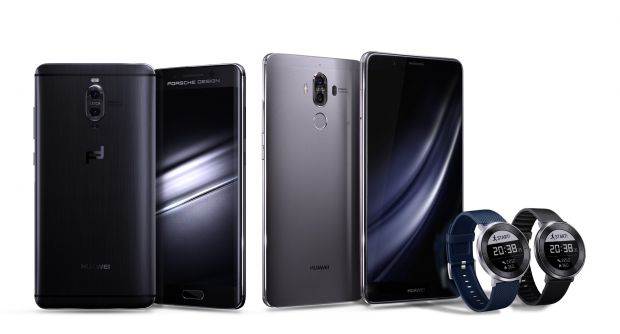Huawei’s latest flagship smartphone, the Mate 9, will make its debut in China and Europe just in time for the holiday shopping season. The Chinese handset maker has confirmed the Mate 9 will be introduced in the United States as well, but that might not happen until January 2017.
Unfortunately, Huawei will have a hard time selling the Mate 9 in the most important market for smartphones that cost more than $500, WSJ reports. Some of you probably know that Huawei is kind of a non-grata handset maker in the United States.
Back in 2012, a congressional report recommended carriers in the country to avoid using Huawei gear in their networks for fear that China might spy on American customers. Although the Chinese company has denied these allegations, carriers in the U.S. continue to be reluctant to sell Huawei’s products.
But that’s not the only thing that makes it hard for Huawei to sell its Mate 9 in the U.S. In order to bring the flagship to Verizon and Sprint, which use CDMA networks, some important changes must be made to its mobile chips.
On the other hand, neither Verizon nor Sprint expressed their desire to carry any of Huawei’s flagship smartphones until now. That leaves AT&T and T-Mobile, the only two major carriers in the U.S. that use GSM networks.

Sadly, Huawei is currently in a patent dispute with the Magenta carrier, so a partnership between the two entities is hard to happen anytime soon. Basically, AT&T could be the only carrier in the United States willing to sell the Huawei Mate 9 next year or whenever the Chinese company plans to launch it on the market.
Huawei hasn’t really focused on the high-end smartphone market in the U.S., which is ruled by Apple (39%) and Samsung (22%), but that’s likely to change with the release of the Mate 9.
It’s also worth noting that Huawei is the world’s third handset maker with a market share of 9.4%, but in the U.S, the Chinese company barely reached 0.4% in Q3 2016.
When the Mate 9 launches in the U.S, Amazon and a few other major retailers in the country might be the only ones willing to sell the phone.
Huawei isn’t intimidated by the lack of viable solutions, though, and says that while the U.S. smartphone market is significant for its plans, the company is patient and will measure success over the long term.







